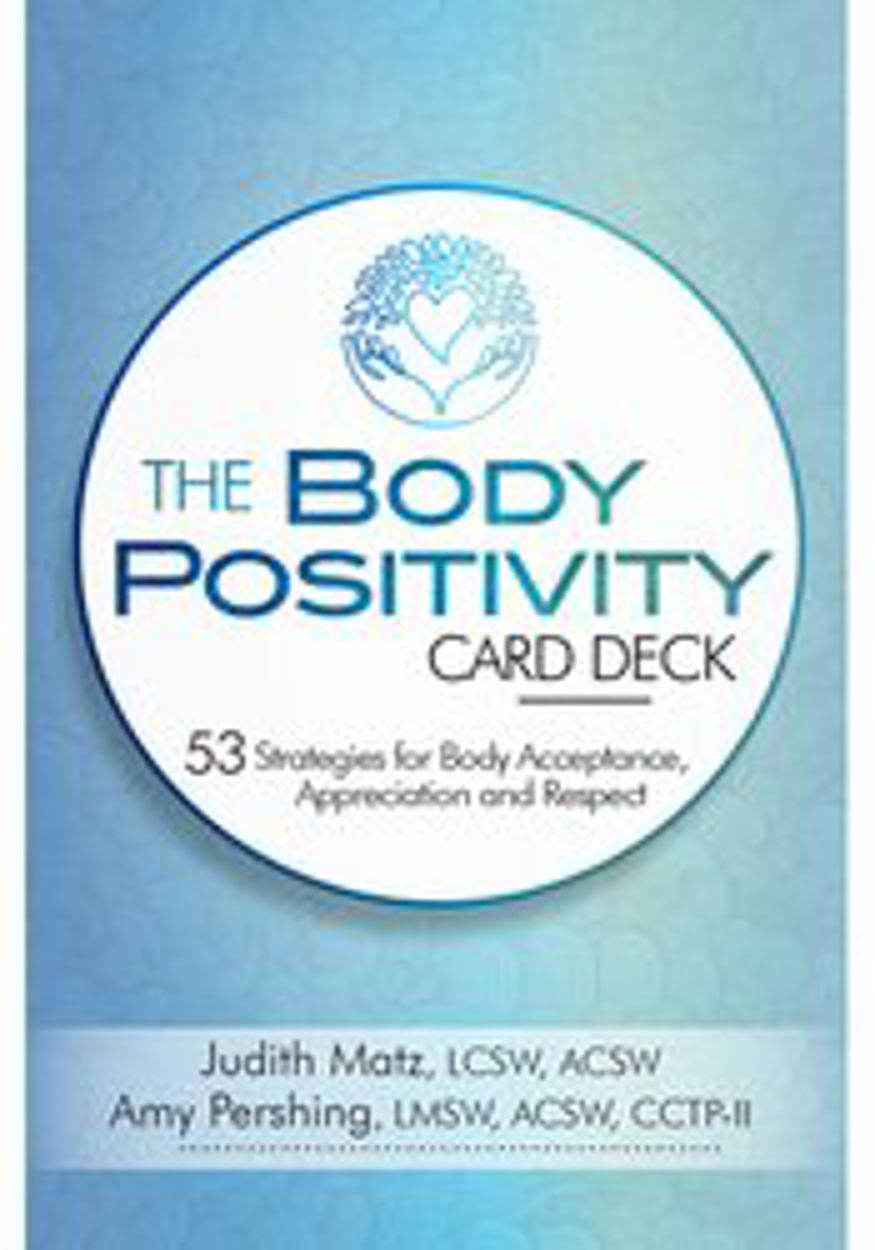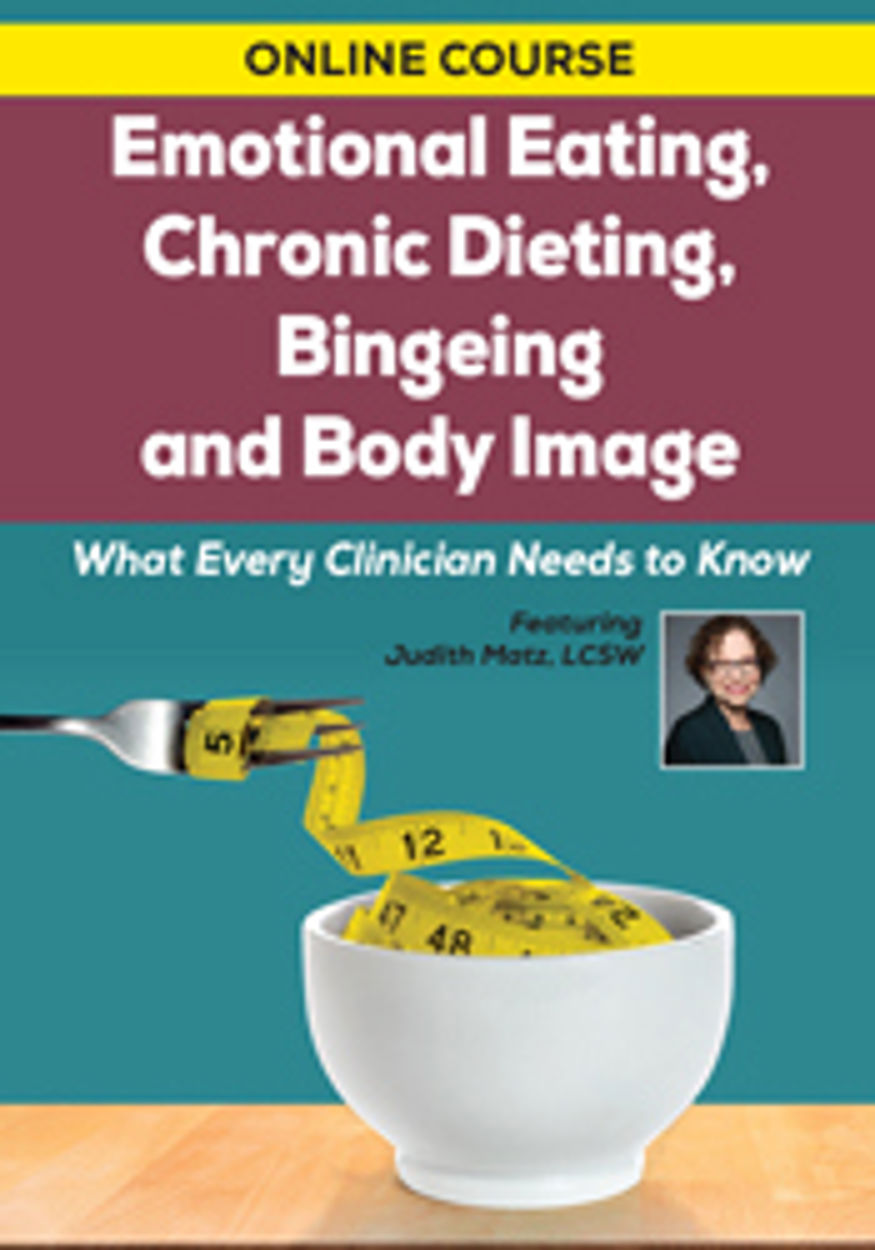3 Misconceptions About Body Positivity

As the body positivity movement gains more mainstream attention, many clients want to work on becoming more body positive. But not everyone means the same thing by ‘body positivity’, and it’s essential to clear up some common misconceptions. The concept has its roots in the work of marginalized groups to reclaim their worth and in the growth of the size acceptance movement during the early 1970's with its focus on ending fat shaming and discrimination based on body size. The term 'body positive' came into wider use in the 1990's within the eating disorder community, including professionals, activists and those with lived experience who understood the importance of rejecting the thin ideal.
With the explosion of social media in the past decade, #bodypositivity has become a highly popular hashtag. While the growing interest in body positivity is cause for optimism, it can also leave clients feeling that they’re “not doing it correctly” or that they’re not included in the movement.
Here are 3 common misconceptions about body positivity to consider as you work with clients to move from body shame to body positivity.
Body positivity means relating to your body with acceptance, appreciation and respect. Body positivity does not require someone to automatically love the way they look or to feel positive about their body at all times. Instead, body positivity helps people unhook their body image from their value as a human being and supports them in cultivating practices that strengthen physical, emotional and spiritual wellbeing.
No matter how much a client embraces body positivity, it’s important to understand that in our fatphobic culture, negative body thoughts are still likely to arise at times. Additionally, there might be other non-weight related reasons that people don’t feel at home in their bodies, e.g. gender identity, physical ability or chronic pain.
As you work with clients to cultivate body positivity, helping them find new strategies to respond to negative body thoughts is the key component in reducing body shame and increasing self-compassion.
Body positivity is meant for people of all sizes, shapes, colors, abilities, sexual orientations, gender identities, and ages. However, images tagged as body positive on social media are often of white, cisgendered women just slightly larger than the thin ideal.
It’s essential to represent all types of bodies as deserving of acceptance, appreciation and respect in order to make body positivity a truly inclusive movement.
Body image refers to a person’s perception of their own body and is not contingent on body size. There are people of all sizes who feel good about their bodies and people of all sizes who don’t. Clients can practice numerous strategies to develop a more positive body image, such as having enough clothes that fit their current size and letting go of weighing themselves. Building a positive body image is an important aspect of becoming body positive.
While strengthening one’s own body image is an individual act, body positivity is a broader social movement that values all bodies and rejects fat shaming and systemic weight bias. Someone can have a positive body image but still not embrace body positivity—or even know what it means. In addition to working on body image, clients who want to become body positive must also reflect on whether they contribute to diet culture and weight stigma, even if unintentionally. For example, participating in diet conversations or giving weight loss compliments supports the belief that a thinner body is a better body.
Body positivity is a powerful approach to help clients let go of body shame, feel more at home in their own bodies, and transform diet culture.
With the explosion of social media in the past decade, #bodypositivity has become a highly popular hashtag. While the growing interest in body positivity is cause for optimism, it can also leave clients feeling that they’re “not doing it correctly” or that they’re not included in the movement.
Here are 3 common misconceptions about body positivity to consider as you work with clients to move from body shame to body positivity.
Misconception #1: Body Positivity means loving your body 24/7
Body positivity means relating to your body with acceptance, appreciation and respect. Body positivity does not require someone to automatically love the way they look or to feel positive about their body at all times. Instead, body positivity helps people unhook their body image from their value as a human being and supports them in cultivating practices that strengthen physical, emotional and spiritual wellbeing.
No matter how much a client embraces body positivity, it’s important to understand that in our fatphobic culture, negative body thoughts are still likely to arise at times. Additionally, there might be other non-weight related reasons that people don’t feel at home in their bodies, e.g. gender identity, physical ability or chronic pain.
As you work with clients to cultivate body positivity, helping them find new strategies to respond to negative body thoughts is the key component in reducing body shame and increasing self-compassion.
Misconception #2: Body Positivity is limited to being “a little bit bigger” than the cultural ideal
Body positivity is meant for people of all sizes, shapes, colors, abilities, sexual orientations, gender identities, and ages. However, images tagged as body positive on social media are often of white, cisgendered women just slightly larger than the thin ideal.
It’s essential to represent all types of bodies as deserving of acceptance, appreciation and respect in order to make body positivity a truly inclusive movement.
Misconception #3: Having a positive body image is the same thing as being body positive.
Body image refers to a person’s perception of their own body and is not contingent on body size. There are people of all sizes who feel good about their bodies and people of all sizes who don’t. Clients can practice numerous strategies to develop a more positive body image, such as having enough clothes that fit their current size and letting go of weighing themselves. Building a positive body image is an important aspect of becoming body positive.
While strengthening one’s own body image is an individual act, body positivity is a broader social movement that values all bodies and rejects fat shaming and systemic weight bias. Someone can have a positive body image but still not embrace body positivity—or even know what it means. In addition to working on body image, clients who want to become body positive must also reflect on whether they contribute to diet culture and weight stigma, even if unintentionally. For example, participating in diet conversations or giving weight loss compliments supports the belief that a thinner body is a better body.
Body positivity is a powerful approach to help clients let go of body shame, feel more at home in their own bodies, and transform diet culture.
Do you want more on Body Positivity?

You can feel better about your body, and move from body shame to body positivity with The Body Positivity Card Deck including 53 strategies for body acceptance, appreciation and respect.
With these simple practices, reflections, and inspirations you’ll learn to find appreciation for your body. This deck contains 53 unique healing strategies that will guide you to build self-confidence and respect for the body that you have - and help to create a more inclusive world.
With these simple practices, reflections, and inspirations you’ll learn to find appreciation for your body. This deck contains 53 unique healing strategies that will guide you to build self-confidence and respect for the body that you have - and help to create a more inclusive world.

Help Your Clients Break the Chains of Diet Culture
This groundbreaking online course gives you cutting-edge, research-based information on disordered eating and diet culture…
This groundbreaking online course gives you cutting-edge, research-based information on disordered eating and diet culture…





